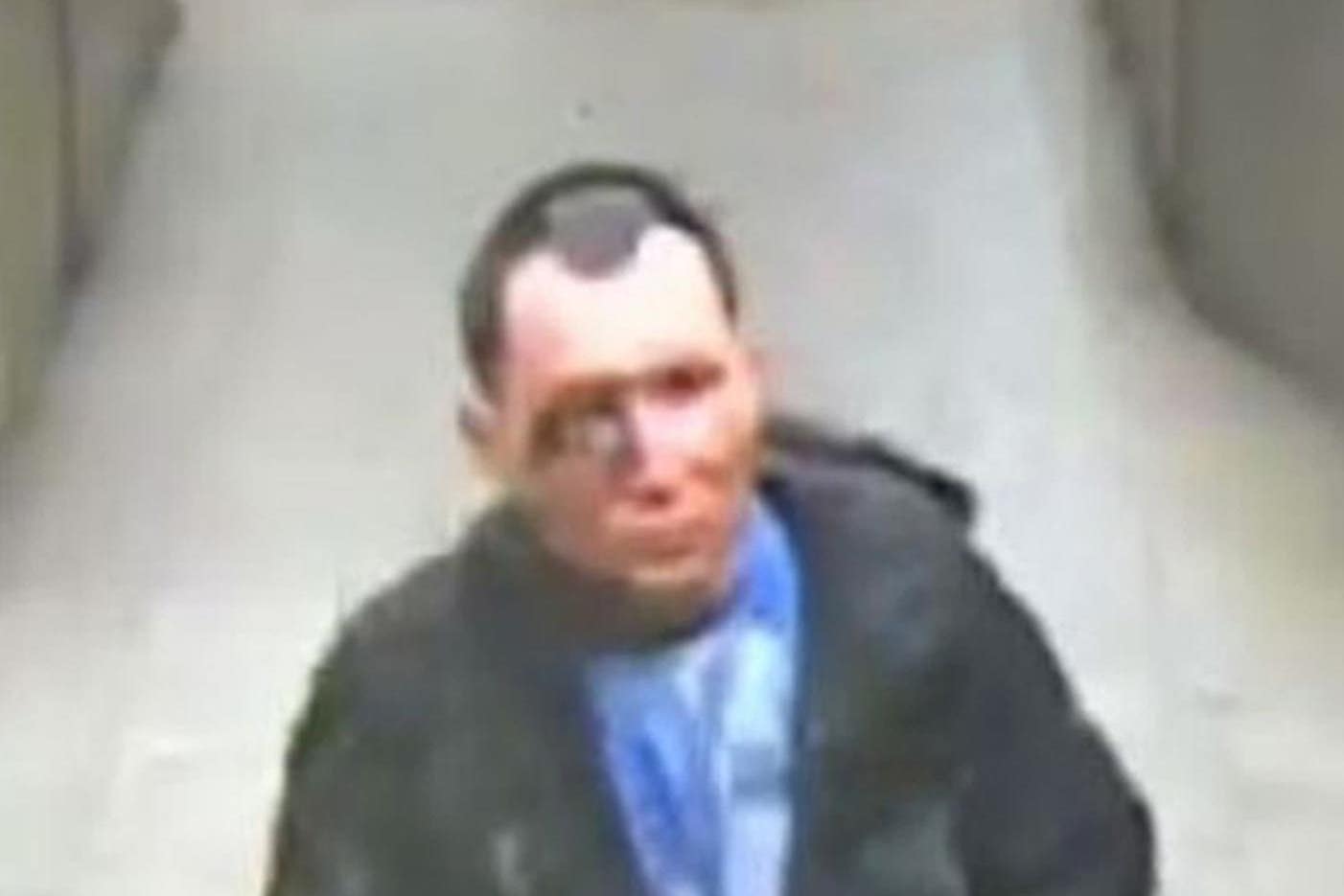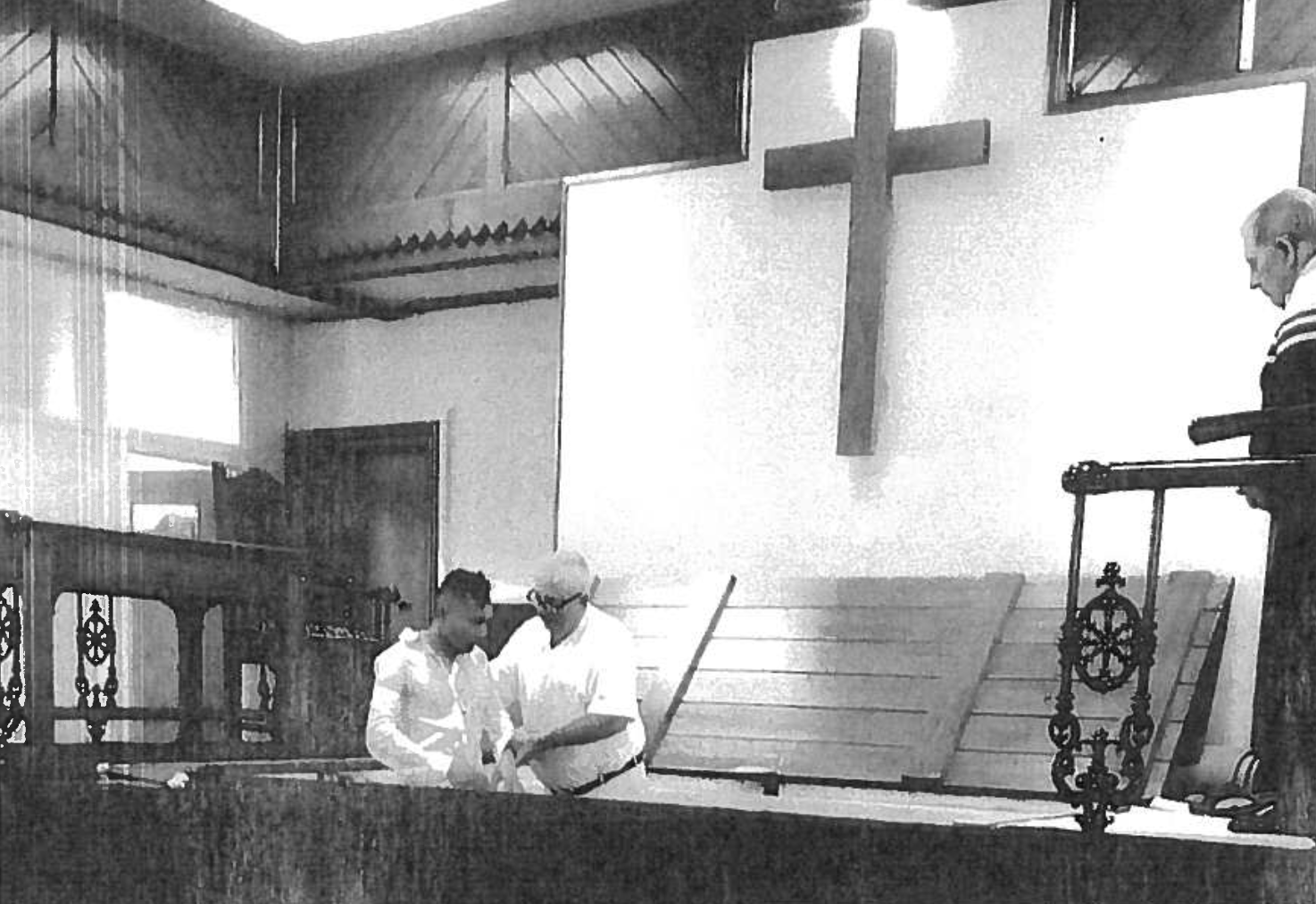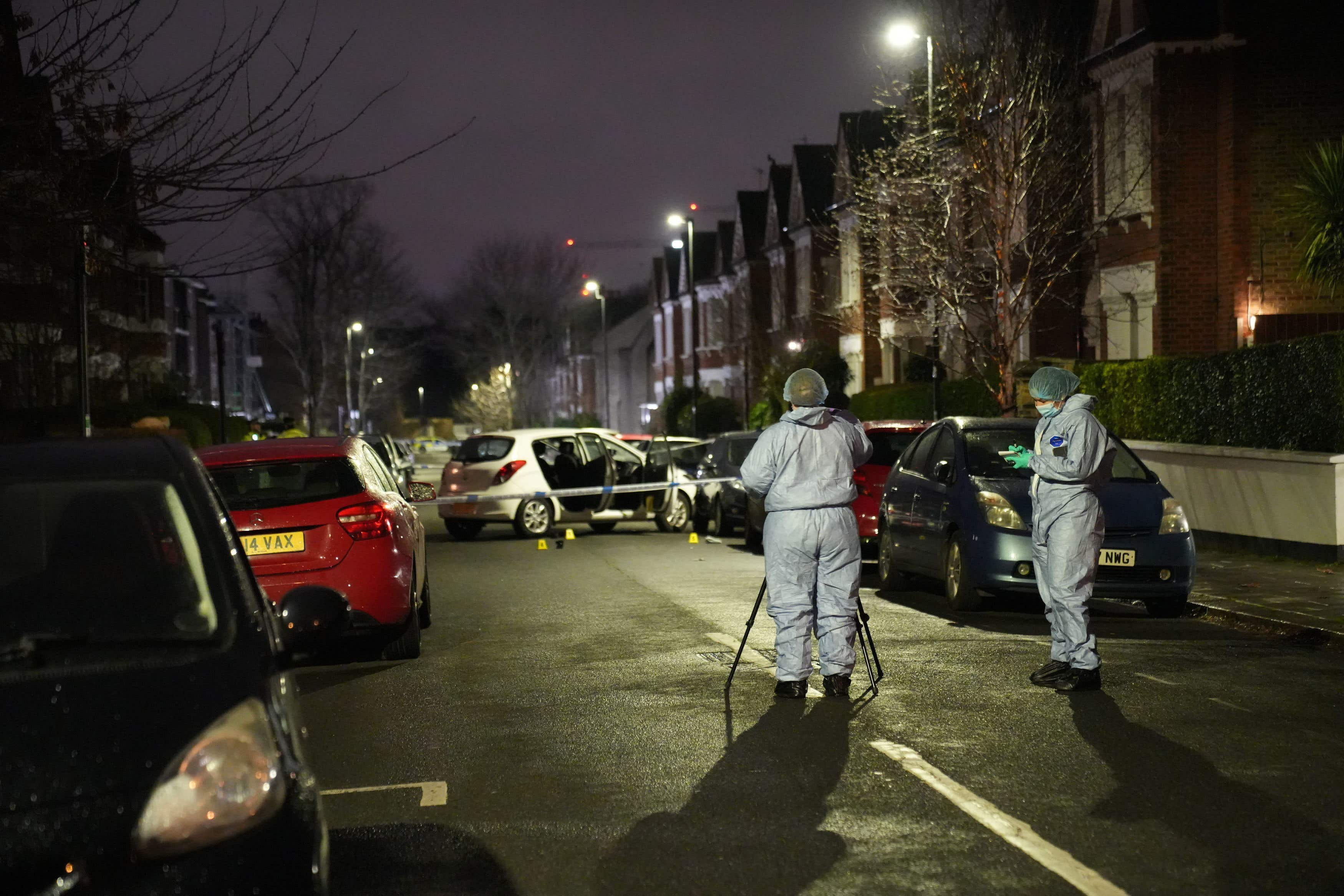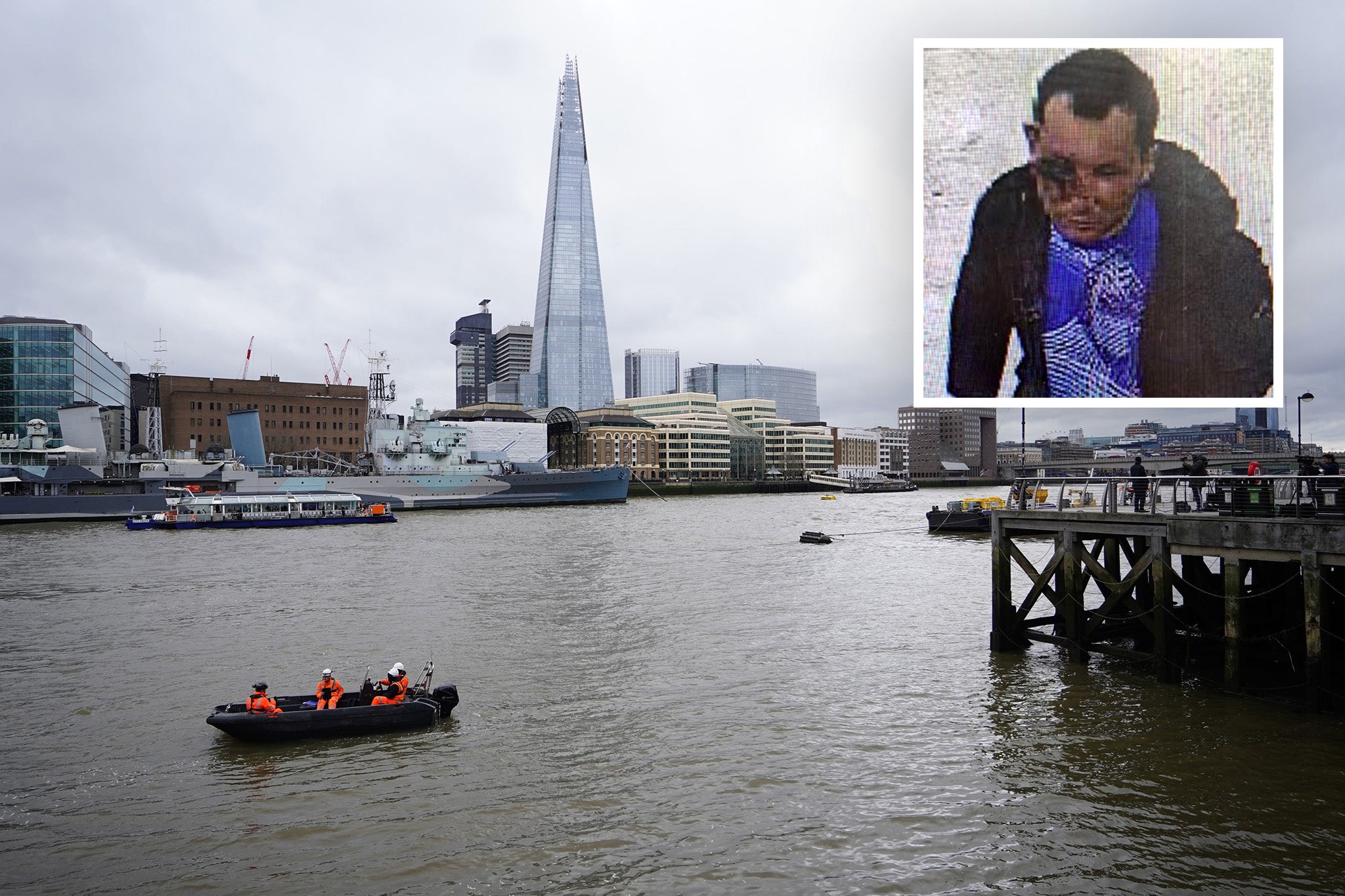Revealed: How Clapham chemical attacker Abdul Ezedi was allowed to stay in UK despite sex offence conviction
Abdul Ezedi claimed his conversion to Christianity began within weeks of his arrival in Britain, but a hearing heard concerns that he had ‘fabricated’ part of his claim
The Clapham chemical attack suspect was granted asylum after convincing a judge he was a Christian convert – despite concerns he had “fabricated” parts of his claim.
A tranche of immigration documents has revealed a judge had already refused Abdul Ezedi’s application for asylum in 2017 because they did not believe his conversion – which happened in a matter of weeks – was genuine.
However, he was granted leave to remain after successfully convincing a different judge on appeal three years later, arguing his new Christian faith could lead to his persecution if he was returned to Afghanistan.
His successful claim was supported by a Baptist minister from a church in Jarrow, Tyne and Wear, which he joined shortly after arriving in Britain in 2016.
Shockingly, the appeal ruling allowing him to stay – dated 10 November 2020 – made no reference to his convictions for sex offences two years earlier.
He was handed a suspended sentence and put on the sex offenders register in 2018 after pleading guilty to one charge of sexual assault and one of exposure.
The former car mechanic, who suffered from depression and anxiety and told immigration officials he talked to himself, is feared to have gone on to commit a horrific chemical attack on his ex-partner and her two young children in Clapham, south London, in January this year.

His body was later pulled from the Thames after he is thought to have plunged from Chelsea Bridge hours after the attack.
According to tribunal documents obtained by media organisations, Ezedi arrived in the UK on 8 January 2016 and applied for asylum.
Originally a Shia Muslim, he told immigration officials that his interest in Christianity began shortly after he arrived in Britain when he was housed with an Iranian man who attended church and read the Bible.
He started attending Grange Road Baptist Church in February and went on to complete an Alpha course in Christianity, before he was baptised in June 2018.
Since then, he said, he had actively been engaged in street ministry, handing out religious leaflets in Newcastle.
During a Home Office interview in 2019, Ezedi was unable to explain his understanding of the Bible or its meaning to immigration officials, despite claiming to have read it for three years.
According to his account, he was shot in the leg by the Taliban at home in Afghanistan and his family home was bombed – adding that the punishment for converting in sharia law is execution.
But in 2017, Judge Gribble of the First-tier Tribunal found that inconsistencies in his account “painted a wholly unreliable and inconsistent picture, and one which lacked credibility”.

Judge Gribble said he did not believe his conversion was genuine and refused his asylum bid, adding that his church attendance and baptism did not amount to compelling evidence that he would face a real risk of persecution if returned to Afghanistan.
However, at a fresh appeal hearing in 2020, a different judge concluded Ezedi’s conversion was genuine despite concerns about his honesty.
The tribunal also heard oral submissions from Reverend Roy Merrin, of the Grange Road Baptist church, in support of Ezedi.
In his evidence, Rev Merrin stated that he had previously attended tribunals on four occasions in support of applicants for asylum based upon Christian conversion – but insisted he only supported those whose conversion was genuine.
In his ruling, Judge O’Hanlon said: “Having considered all of the evidence before me in the round, notwithstanding my concerns as to the honesty of the appellant in relation to certain aspects of his account, I find that the appellant had been consistent in his evidence with regard to his conversion to Christianity.
“I found that the appellant’s account of his conversion to Christianity was supported by the former Reverend Merrin who had known him for more than four years and who having seen the appellant on a regular basis throughout that period was satisfied that the appellant was a genuine Christian convert.

“Former Reverend Merrin was alive to the possibility of unjustifiable claims to Christian conversion being made but did not consider that this was the case with regard to the appellant.
“Having taken all of these factors into account, I am satisfied to the lower standard of proof that the appellant has undergone a genuine conversion from his former Muslim faith to Christianity and that accordingly, as was accepted by the respondent in the refusal letter, would be at risk in the event of return to Afghanistan. I therefore allow his asylum appeal.”
A nationwide manhunt was launched for Ezedi after his former partner and her two daughters, aged three and eight, were doused in corrosive liquid in the horrifying chemical attack in Clapham.
In all, 12 people needed hospital treatment after the “targeted” attack with an alkaline substance in Lessar Avenue on 31 January, which left the mother, 31, with injuries likely to be life-changing.
He is thought to have travelled to the capital from Newcastle to carry out the attack, which also left him with serious injuries to his face.
Searches were eventually called off after detectives tracked the suspect to Chelsea Bridge on CCTV, where he was seen leaning over the railings before he is believed to have plunged into the Thames.

Last month, police confirmed a body pulled from the water was the 35-year-old suspect. The body was found near Tower Bridge on 19 February and he was later formally identified at a post-mortem.
However, questions have been raised over why Ezedi, originally from Afghanistan, was granted asylum despite being convicted of a sexual offence in 2018.
The Crown Prosecution Service confirmed he was handed a suspended sentence on 9 January 2018 after pleading guilty to one charge of sexual assault and one of exposure at Newcastle Crown Court. The 35-year-old was put on the Sex Offenders Register for 10 years but was allowed to stay in the UK because his crimes were not serious enough to meet the threshold for deportation.
In the wake of the Clapham attack, former immigration minister Robert Jenrick called for the home secretary to review Ezedi’s asylum case and look at “what may have gone seriously wrong”.
The right-wing Tory hardliner claimed on BBC Radio 4’s Today programme: “I’m afraid we do see, regularly, cases of people making spurious claims of converting to Christianity, aided and abetted by often well-meaning but naive vicars and priests.”

Shadow home secretary Yvette Cooper also wrote to James Cleverly about the “very serious questions which need to be answered about decision-making at the Home Office and the way his case was handled”.
Ms Cooper asked whether the Home Office had “considered deportation” in 2018 following Ezedi’s conviction, or if it made “representations” about his offending history when he was granted asylum.
She added: “It is of real concern that a convicted foreign national sex offender has been allowed to remain in the UK in these circumstances.”
However, Amnesty International’s UK chief Sacha Deshmukh warned the attack “should not be used as a pretext to target people seeking asylum”.
A Home Office spokesperson said: “All asylum claims are carefully considered on their individual merits in accordance with the immigration rules. This means that religious conversions do not guarantee a grant of asylum.
“We have engaged with a wide range of stakeholders to help us to improve our policy guidance, training for asylum decision-makers, and to ensure we approach claims involving religious conversion in the appropriate way.”

